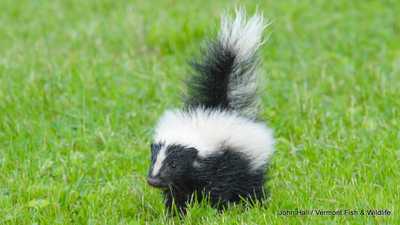Column: Young Wildlife Belong in the Wild
 |
| Picking up young wildlife can do more harm than good, according to the Vermont Fish and Wildlife Department. It's also against the law. |
MONTPELIER, Vt. — Watching wildlife is enjoyable, especially when young animals appear in the spring. But it is best to keep your distance. Picking up young wildlife can do more harm than good, according to the Vermont Fish and Wildlife Department, and it is also against the law.
When people see young animals alone, they often mistakenly assume these animals are helpless or lost, in trouble or needing to be rescued. Bringing young wildlife into a human environment often results in permanent separation from their mothers and a sad ending for the animal.
Handling wildlife could also pose a threat to the people involved. Wild animals can transmit disease and angry wildlife mothers can pose significant dangers.
Department scientists encourage wildlife watchers to respect the behavior of animals in the spring and early summer, and to resist the urge to assist wildlife in ways that may be harmful.
Here are some helpful tips:
• Deer and moose nurse their young at different times during the day, and often leave young alone for long periods of time. These animals are not lost. Their mother knows where they are and will return.
• Young birds on the ground may have left their nest, but their parents will still feed them.
• Young animals such as fox and raccoon will often follow their mother. The mother of a wildlife youngster is usually nearby but just out of sight to a person happening upon it.
• Animals that act sick can carry rabies, parasites or other harmful diseases. Do not handle them. Even though they do not show symptoms, healthy-looking raccoons, foxes, skunks, and bats may also be carriers of the deadly rabies virus.
• Many wildlife species will not feed or care for their young when people are close by. Obey signs that restrict access to wildlife nesting areas, including hiking trails that may be temporarily closed.
• Keep domestic pets indoors, leashed or fenced in. Dogs and cats kill many baby animals each year.
• Avoid projects that remove trees, shrubs and dead snags that contain nests during the spring and summer.
For information about rabies and wildlife conflicts, or truly orphaned wildlife, call the Vermont Rabies Hotline at 1-800-4RABIES (1-800-472-2437).
For the safety of all wildlife, taking a wild animal into captivity is illegal, even one you suspect is sick, injured or has been abandoned.
Provided by the Vermont of Fish & Wildlife Department.
Tags: wildlife,

